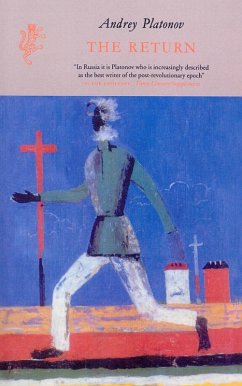People are on the move in all ten stories in this collection, coming home as in "The Return", leaving home as in "Rubbish Wind", travelling far away from their country as in "The Locks of Epiphan", trying to improve their lives and those of others, running away, searching, fleeing. Their journeys are accompanied by two motives which characterize the writing of Andrey Platonov: optimism and faith in the goodness of humanity, and abject despair at the cruelty, randomness, and apparent senselessness of our existence. The protagonists are torn between these poles and sometimes a synthesis shines through the mists of the apparent naivety of faith and the blackness of despair: the hope against hope that a better life is still possible.
Though Russian readers and critics have come to look on Platonov as among their greatest prose writers of this century, he has yet to enjoy a parallel international reputation - mainly because much of his best writing was suppressed for more than 60 years. Combining a realism inspired by his work as an engineer with poetic vision and the deceptively simple language of folk tales, Platonov sets his stories alight by using language in a way that renders it unfamiliar, makes the ordinary seem unusual and the extraordinary logical. This translation is the first to present the full range of Platonov's gift as a short story writer to an English-language readership, showing why it is that Joseph Brodsky regarded Platonov as the equal of Joyce, Kafka and Proust.
"...strange, almost abrupt, a hallucinatory, nightmarish parable of hysterical laughter and terrifying silences" - Eileen Battersby, Irish Times - in reference to The Foundation Pit
Dieser Download kann aus rechtlichen Gründen nur mit Rechnungsadresse in A, B, BG, CY, CZ, D, DK, EW, E, FIN, F, GR, HR, H, IRL, I, LT, L, LR, M, NL, PL, P, R, S, SLO, SK ausgeliefert werden.









